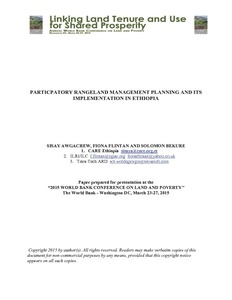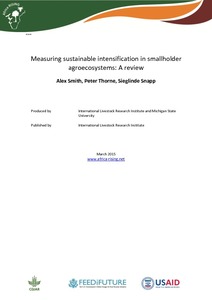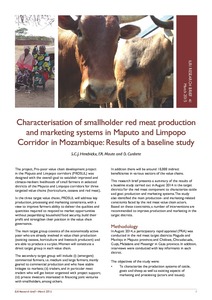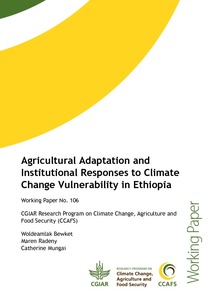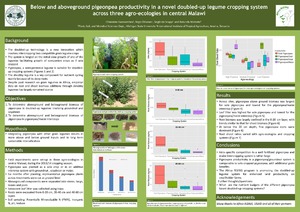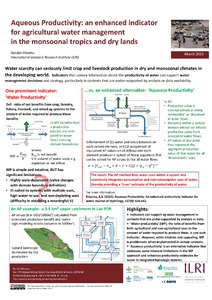Gender, small-scale livestock farming and food security : policy implications in the South African context
Drawing on insights from multiple studies, this policy brief addresses the importance of gender considerations for small-scale livestock farming communities relative to food security in the South African context.
Participatory rangeland management planning and its implementation in Ethiopia
The pastoral and agro-pastoral areas of Ethiopia cover around 65% of the country’s surface area. Rangeland resources are managed under collective common property arrangements, which are increasingly coming under pressure from both internal and external forces of change including alternative, but not necessarily ‘appropriate’, land uses.
Measuring sustainable intensification in smallholder agroecosystems: A review
In the sustainable intensification (SI) of smallholder agroecosystems, researchers and farmers collaborate to produce more food on land currently in cultivation, secure wellbeing in the present day, and bolster ecosystem services to sustain agricultural productivity into the future.
Characterisation of smallholder red meat production and marketing systems in Maputo and Limpopo Corridor in Mozambique: Results of a baseline study
The story of Index Based Livestock Insurance (IBLI)
Agricultural Adaptation and Institutional Responses to Climate Change Vulnerability in Ethiopia
Climate change is a major development challenge to Ethiopia. Climate change is expected to
adversely affect all economic sectors, eco-regions, and social groups. Agriculture is one of the
most vulnerable sectors as it is highly dependent on rainfall. This report synthesises four case
Participatory modelling of pastoral and irrigated cropland ecosystems to identify linkages between environmental changes and local stakeholders’ health and well-being
Below and aboveground pigeonpea productivity in a novel doubled-up legume cropping system across three agro-ecologies in central Malawi
Ordenamiento ambiental en áreas protegidas de montaña: una propuesta a partir del estudio de los impactos del pastoreo en el Parque Nacional Huascarán
Environmental ordering is a process that promotes adequate land use through regulation, planning and management of the elements of a specific environment. Nevertheless, the process of environmental ordering has been assumed as static, considering only physical aspects in the analysis of environmental problems.
Handbook on Land Laws
The Land Act, 2012
The Land Registration Act, 2012
The National Land Commission Act, 2012
The Environment & Land Court Act, 2011
The Urban Areas & Cities Act, 2011



